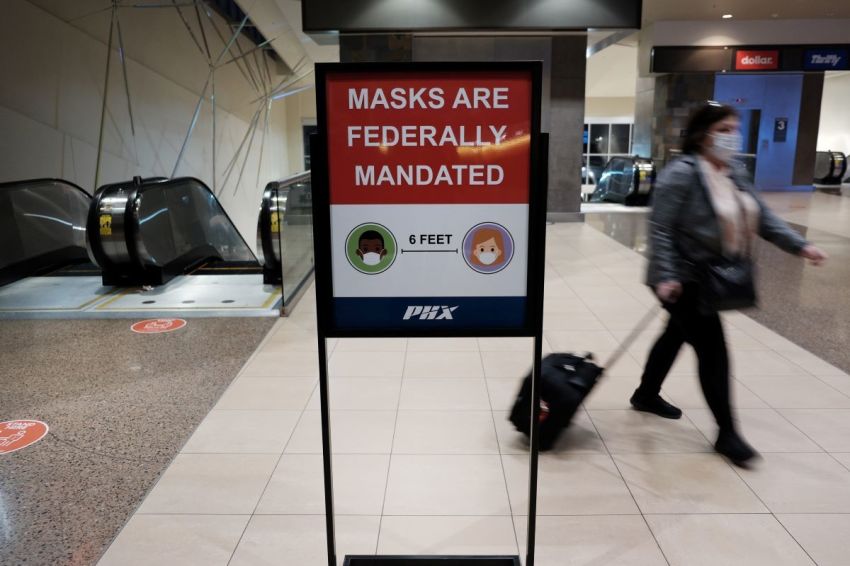Up to 88K COVID-19 deaths, 1 million hospitalizations possible over next 4 weeks: CDC forecast

A high-end estimate of up to 88,000 deaths and over 1 million hospital admissions could follow the ongoing wave of the COVID-19 pandemic over the next four weeks as the virus moves toward claiming nearly 900,000 lives in the United States alone, according to the U.S. Centers for Disease Control and Prevention.
In an ensemble forecast, which combines data from diverse independent team forecasts on the pandemic, published Monday and updated on Wednesday, the CDC stated its low and high estimates on how many COVID-19 related deaths will likely occur from Jan. 10 to Feb. 5.
“This week’s national ensemble predicts that the number of newly reported COVID-19 deaths will likely increase over the next 4 weeks, with 10,400 to 31,000 new deaths likely reported in the week ending February 5,” the agency noted.
The CDC report states that the ensemble forecasts have been “among the most reliable forecasts in performance over time" but "do not reliably predict rapid changes in the trends of reported cases, hospitalizations, and deaths." Additionally, the forecasts should not be relied on “for making decisions about the possibility or timing of rapid changes in trends.”
The agency notes that recent “national total death forecasts have shown low reliability, with more reported deaths than expected falling outside the forecast prediction intervals.”
“Therefore, national total death forecasts will continue to be collected and analyzed but will not be summarized until sustained improvements in performance are observed,” the CDC stressed.
The outlook for new reported COVID-19 hospital admissions includes forecasts from 9 modeling groups, each of which contributed a forecast for at least one jurisdiction, the CDC said. However, the “models make various assumptions about the levels of social distancing and other interventions, which may not reflect recent changes in behavior.”
For the period Jan. 10 to Feb. 4, the current forecast for COVID-19 hospitalizations is a cumulative total that could be as high as 1,017,725 or as low as 528,509.
Daily new COVID-19 hospitalizations could be as low as 38,534 or as high as 47,964 on Feb. 4 alone. However, the highest daily prediction for hospitalizations is shown for Jan. 30 when the ensemble forecast says there could be as many as 49,276 hospitalizations.
“Reported daily new hospital admissions can vary due to variable staffing and inconsistent reporting patterns within the week. Thus, daily variations in the reported numbers and the forecasts may not fully represent the true number of confirmed COVID-19 hospital admissions in each jurisdiction on a specific day,” the agency said.
The latest data from the CDC also shows that the fast-spreading omicron variant of COVID-19 has been responsible for more than 98% of new infections as of Jan. 8.
A recently published study of nearly 70,000 COVID-19 patients in California found that while the omicron variant now represents the majority of new infections, it is associated with “reduced risk of severe clinical endpoints and shorter durations of hospital stay.”
CDC Director Dr. Rochelle Walensky noted on Wednesday that the majority of the people dying from COVID-19 deaths now are still from the delta variant.
“Given the sheer number of cases, we may see deaths from omicron, but I suspect the deaths we’re seeing now are still from delta,” she said.
She also pointed to the recent California study and said the findings are consistent with data from South Africa and the United Kingdom, which could help the U.S. understand what will happen over the next few weeks.
“The risk of hospitalization remains low — especially among people who are up to date on their Covid vaccines,” she said. “However, the staggering rise in cases, over 1 million new cases each day, has led to a high number of total hospitalizations.”
In a briefing on Thursday, President Joe Biden said his administration was securing 500 million additional at-home rapid COVID-19 tests to meet demand around the country and would double the number of tests the U.S. plans to send to the public free of charge.
Lines for free testing for COVID-19 have stretched for blocks in some cities, and pharmacies have been struggling to keep up with the demand for rapid tests, The Wall Street Journal reported.
Some families are still reportedly spending hundreds of dollars on testing due to the crisis, while others are forgoing testing altogether.
President Biden urged Americans to either get vaccinated or boosted as the omicron variant surges across the country.
“Both vaccinated and unvaccinated people are testing positive, but what happens after that couldn’t be more different,” he said, noting that unvaccinated people who get COVID-19 are 17 times more likely to be hospitalized than those who get vaccinated.



























